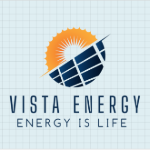Course Location/Date : Kigali, Rwanda/29 Sept., 3 Oct., 2025.
Course Date: London , UK/13-17 October, 2025
Contact us at info@vistaenergylc.com for more inquiries and registration
Course Introduction
Hydrocarbon accounting plays a vital role in the oil and gas industry, ensuring the accurate measurement, tracking, allocation, and reporting of produced hydrocarbons across the entire value chain. It directly impacts revenue distribution, production efficiency, and regulatory compliance.
This course provides a comprehensive understanding of the technical and commercial principles behind hydrocarbon accounting. Participants will learn the methodologies and tools used for production measurement, allocation, loss control, reconciliation, and reporting, as well as the integration of accounting systems with operational and contractual requirements. Whether working in upstream, midstream, or joint venture operations, this course is designed to build critical competencies needed to manage hydrocarbon volumes with precision and transparency.
Training Objectives
By the end of this course, participants will be able to:
- Understand the fundamental principles and importance of hydrocarbon accounting in upstream operations.
- Apply methods for measuring, monitoring, and reconciling oil, gas, and condensate production.
- Execute accurate production allocation in multi-well, multi-reservoir, or commingled systems.
- Analyze and resolve discrepancies in production data and metering systems.
- Interpret and comply with contractual, fiscal, and regulatory reporting requirements.
- Utilize hydrocarbon accounting software and digital systems to improve data accuracy and audit readiness.
Five-Day Course Outline
Day 1: Fundamentals of Hydrocarbon Accounting
- Overview of hydrocarbon value chain (exploration to sales)
- Importance of hydrocarbon accounting in oil & gas business
- Key concepts: measurement, allocation, reconciliation, and reporting
- Terminology and definitions: gross/net production, losses, shrinkage, etc.
- Regulatory and contractual context of hydrocarbon data
Day 2: Measurement and Metering Systems
- Types of meters (orifice, ultrasonic, Coriolis, turbine) and their selection
- Meter calibration, maintenance, and verification procedures
- Flow measurement of oil, gas, and NGLs
- Data acquisition systems (SCADA, DCS, flow computers)
- Managing measurement uncertainty and quality assurance
Day 3: Production Allocation Methods
- Allocation principles: ownership vs. operational accounting
- Volume allocation for commingled streams (well-to-facility)
- Mass balance, volume balance, and energy balance methods
- Field examples: single-phase, multi-phase, and complex networks
- Use of allocation factors and back-allocation logic
Day 4: Loss Control, Reconciliation, and Reporting
- Identification and classification of production losses
- Daily and monthly reconciliation of measured vs. allocated volumes
- Tank gauging, inventory reconciliation, and shrinkage handling
- Reporting to regulators, partners, and internal stakeholders
- Managing non-conformities and audit findings
Day 5: Systems, Integration, and Practical Applications
- Hydrocarbon accounting software systems (e.g., Tieto Energy Components, ProdMan)
- Integration with production data management and ERP systems
- Case study: building a full-cycle hydrocarbon accounting model
- Data governance and audit trails
- Final workshop: team-based reconciliation and reporting exercise
Contact us at info@vistaenergylc.com for more inquiries and registration
